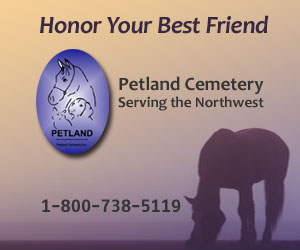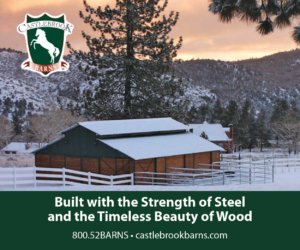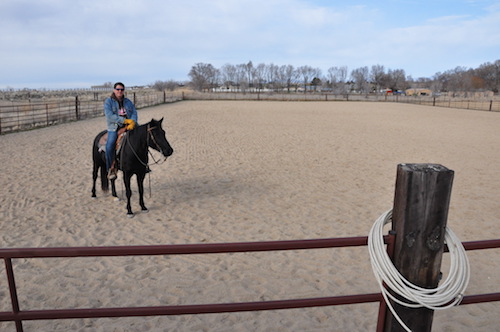Preparing an Emergency Evacuation Plan
by Alayne Blickle, Horses for Clean Water
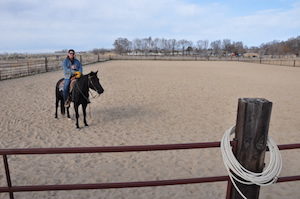
Most of the Western United States is what’s called a “fire adaptive ecosystem.” That means the question is not if a major fire is going to happen to the landscape, it’s when. The majority of horse owners live in rural areas and it’s often up to them to figure out how to be better prepared for wildfire and manage their own evacuation. This article covers basic protocol of an effective evacuation plan.
Everyone’s situation differs according to the size and nature of their horse enterprise, which is why every horse owner needs to develop an individual evacuation plan before hot weather and fire season arrive.
Use this list to help organize your own fire-wise evacuation plan.
- In an emergency, defer to local authorities. The county sheriff is always in charge of evacuations. If possible, listen to local radio stations or contact 911 for instructions.
- Decide in advance which horses you will evacuate and make sure they are suitably trained for transport. If you do not have enough trailer space for all of your horses, talk with friends ahead of time to see if someone might be available to help if needed in an emergency.
- During a fire situation remove all synthetics such as nylon halters, blankets, sheets and fly masks. People often mistakenly think these materials will protect horses from windblown sparks when in fact if an ember alights it can melt and burn the horse worse. Instead, use cotton or leather halters and leads, avoiding metals and buckles (which can get hot if exposed to heat.)
- Pre-determine possible locations to take your horses should a fire arise. Options include a friend’s horse property, a regional stockyard or livestock sales yard, county fairgrounds, show facilities, a racetrack, or even a large park.
- When evacuation is not possible, place horses in a pre-determined fire safe area on your property. A fire safe area is something you have identified and created ahead of time. It should be as large as possible, devoid of flammable vegetation, and surrounded by metal fencing. A fire safe area could be a large sand arena (no wood footing or fencing which can ignite and burn), a large, dry lot turnout, or an overgrazed field or pasture. If time permits, put water and feed in the center in non-flammable, metal containers.
- If you have to leave horses and time permits, consider writing your cell phone number on a front hoof using a permanent marker, or on a hip using a grease marker (the type used for cattle sales or endurance rides).
- Finally, never, ever turn horses loose. This is the number one rule, yet it’s often broken by horse owners. In almost every large-scale wildfire, officials have to deal with loose horses on roadways blocking both traffic and emergency personnel who are trying to deal with the fire. Loose horses become an additional liability, especially if they cause an accident or get injured, exacerbating a crisis and compounding problems.
Wildfires can quickly escalate and become a real threat to rural landowners. When horses are involved, action must be taken quickly to save human lives and those of your animal and to reduce property damage. It’s easy to think wildfire only happens to other people, but that kind of thinking can lead to tragic consequences. Being proactive is the safest plan.
Visit www.horsesforcleanwater.com for information on upcoming Firewise for Horse Owners events, as well as other great education such as:
THURSTON COUNTY, WA
Kiperts Korner, Olympia
Saturday, June 3, 3 pm – 6 pm
WORKSHOP: Control Mud, Dust, Bugs & Weeds – for Horse & Small Acreage Livestock Owners
Details & registration: [email protected] or 360.754.3588 ext. 105
OLYMPIA, WA
Friday, June 2, 9:00 am – 3:00 pm
Location TBD
WORKSHOP: Sound Horse Keeping for Professionals (agency staff, veterinarians, farriers, feed store staff) Details & registration: [email protected] or 360.754.3588 ext. 105
NAMPA, ID
Sunday, June 11, 1 – 3:30 pm
WORKSHOP & FARM WALK: Designing Horse Paddocks for Pasture Management
Details & Registration: [email protected] or 206-909-0225
Originally Published June 2017 Issue
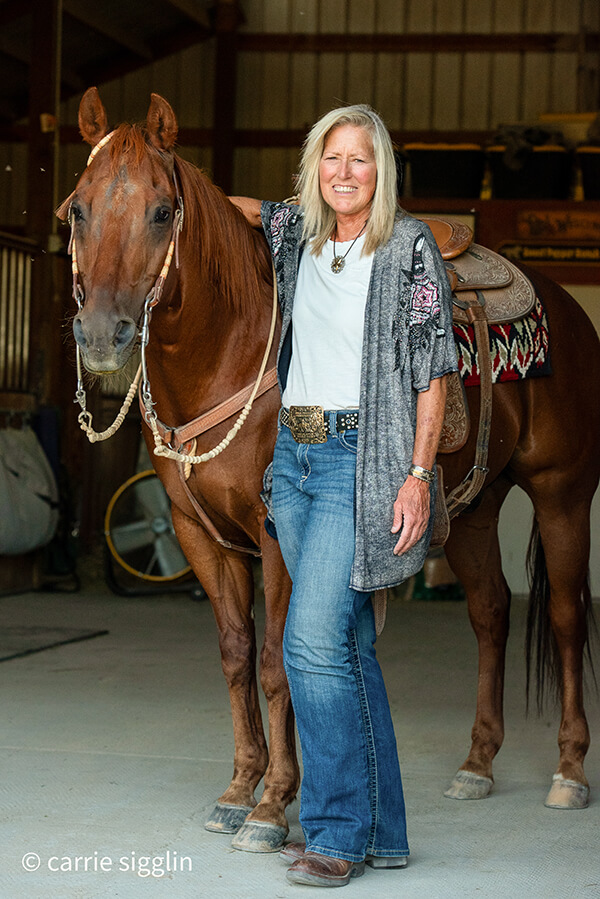
Alayne Blickle began in the 1990’s as a pioneer in water conservation and natural resources conservation by creating the entrepreneurial consulting business, Horses for Clean Water, an award-winning internationally acclaimed education program that looks for horse-healthy, nature-based solutions to land management challenges. She continues this work today partnering with agencies, organizations, and horse owners throughout North America and worldwide. She is a regularly contributing writer and photojournalist to several equine publications.
Alayne lives with her horse trainer husband, Matt Livengood, in southwestern Idaho where they raise and train AQHA horses and mustangs on their eco-friendly horse ranch. Contact her through the Horses for Clean Water website or through their ranch website Sweet Pepper Ranch.
For more information contact Alayne at [email protected] or 206-909-0225.


